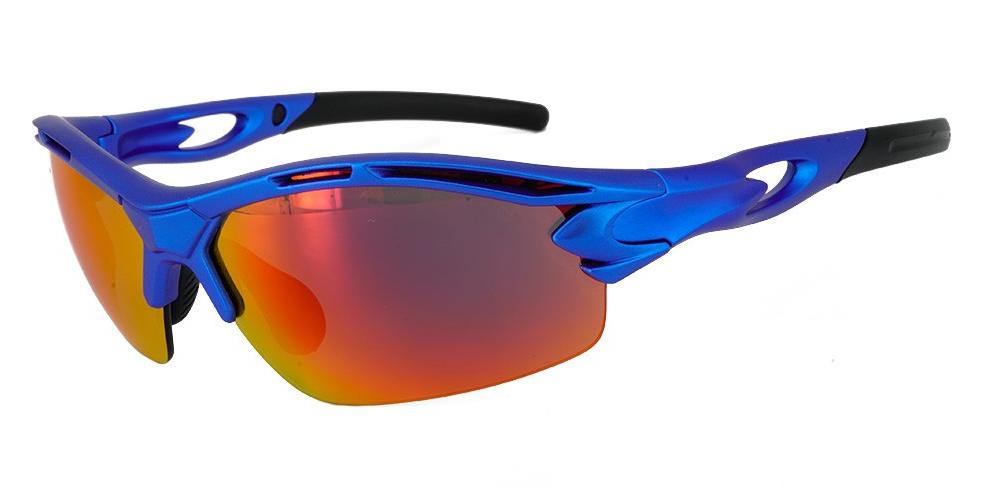Safety glasses are an essential piece of personal protective equipment (PPE) that is used in various industries, including construction, manufacturing, and laboratory work, to protect the eyes from potential hazards. These hazards can include flying debris, chemical splashes, radiation, and other hazardous materials that can cause serious eye injuries or even blindness.
However, over time, the effectiveness of prescription safety glasses may diminish, leading to the question, do safety glasses expire? The answer to this question is not as straightforward as one might think, as there are various factors that can affect the lifespan of safety glasses. In this blog, we will explore the factors that can affect the durability of safety glasses.
#1 Deterioration of the Lens Material
There are several reasons why safety glasses expire. The first reason is that the lens material can deteriorate over time, leading to discoloration, cloudiness, or hazing. This deterioration can affect the clarity of the lenses, making it difficult to see clearly through them. As a result, workers may be at risk of accidents or injuries if they cannot see properly.
#2 Wear and Tear
Another reason why safety glasses expire is due to wear and tear. When used frequently, safety glasses can become scratched, dented, or cracked, compromising their ability to provide protection. Even a small scratch can weaken the lens and make it susceptible to shattering upon impact. Therefore, it is essential to inspect safety glasses regularly and replace them if any damage is found. It is important to choose safety glasses that can handle wear and tear and for this, you can go for Frisco Aviator Prescription Safety Glasses. These glasses come with impact-resistant side shields which are excellent to give your eyes the necessary protection.
#3 Environmental Factors
Environmental factors can also affect the lifespan of safety glasses. Exposure to heat, humidity, and UV radiation can cause the lens material to degrade more quickly, reducing its effectiveness over time. Similarly, exposure to chemicals or harsh solvents can weaken the frame or lens material, making the glasses less durable and more prone to breakage.
#4 Type and Frequency of Usage
The lifespan of safety glasses varies depending on their intended use and the frequency of use. For example, safety glasses used in construction, manufacturing, or other high-risk environments may have a shorter lifespan than those used in less hazardous settings. Similarly, safety glasses worn daily may expire more quickly than those worn occasionally.
#5 Storage of the Eyewear
Storing safety glasses properly is essential to prolong their lifespan and ensure that they remain effective in protecting the eyes. If safety glasses are not stored correctly, they may become damaged, scratched, or contaminated, reducing their effectiveness and increasing the risk of injury to the eyes.
To store safety glasses properly, it is recommended to keep them in a clean and dry environment, away from direct sunlight or extreme temperatures. Exposure to heat or humidity can cause the lens material to degrade more quickly, leading to cloudiness or hazing.
When Should you Replace your Safety Glasses?
To determine when safety glasses should be replaced, it is essential to consider the manufacturer's recommendations and conduct regular inspections. Most manufacturers recommend replacing safety glasses every two to three years, regardless of the frequency of use. However, this recommendation may vary depending on the specific glasses' design and materials.
Regular inspections should also be conducted to check for signs of wear and tear, discoloration, or cloudiness. If any damage is found, the glasses should be replaced immediately. Additionally, if the glasses no longer fit correctly or are uncomfortable to wear, they should be replaced.
Employers should also ensure that workers have access to the appropriate type of safety glasses for their specific job duties. Different types of safety glasses are available, including those with tinted lenses, prescription lenses, or polarized lenses. If you are looking for a highly durable option then you can go for the Matrix Ogden Prescription Safety Glasses which is ANSI Z87.1 certified. It is best suited for industrial and construction work.
Wrapping Up
Safety glasses do expire and become less effective over time. The lifespan of safety glasses depends on several factors, including the type of glasses, frequency of use, and the environment in which they are used. To ensure that workers are adequately protected, employers should follow the manufacturer's recommendations, conduct regular inspections, and provide access to the appropriate type of safety glasses. By doing so, employers can help reduce the risk of eye injuries and promote a safer work environment. If you are looking for durable and high-quality safety glasses then explore the range offered by CA Glasses!













No Comments